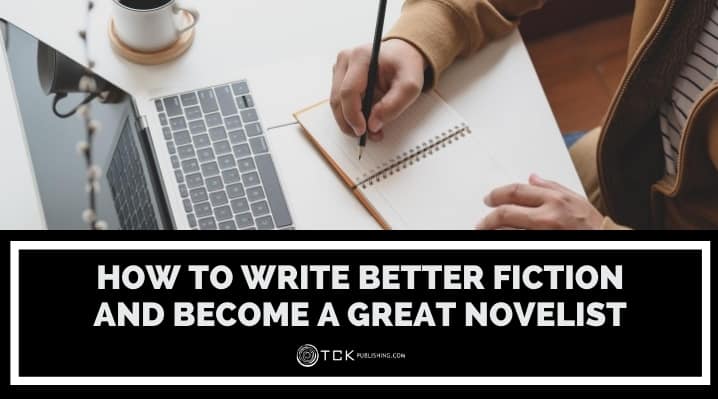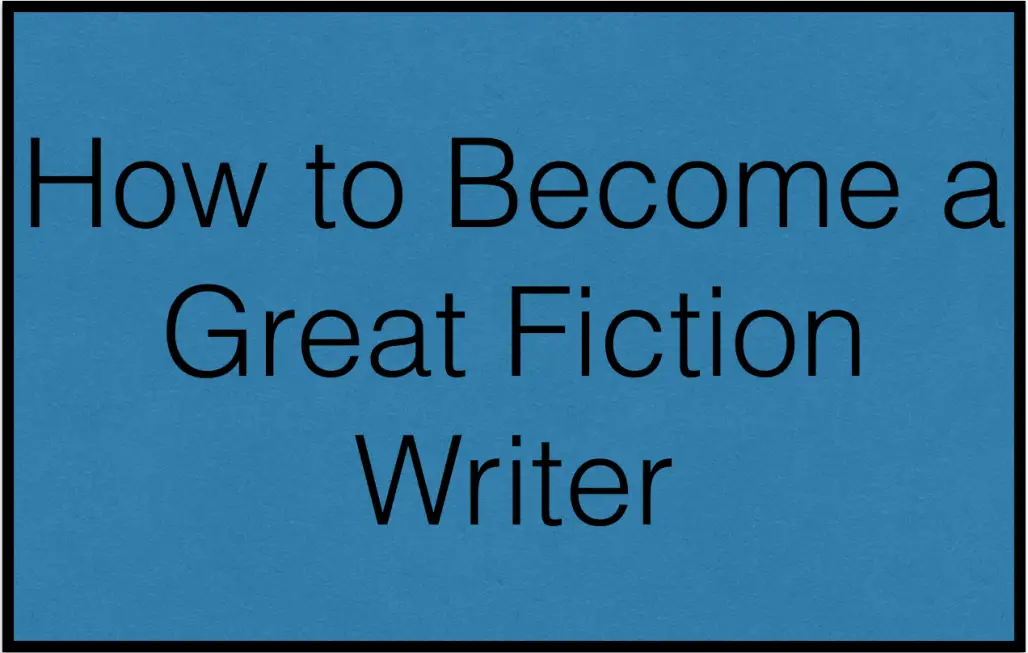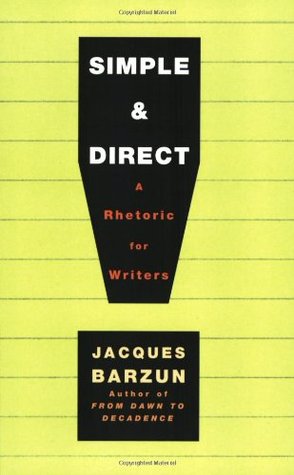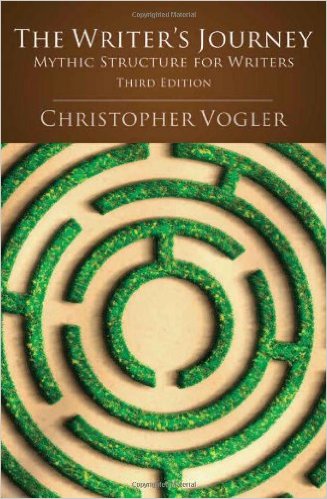
Do you have what it takes to become a great fiction writer?
In this article, I want to share some important ideas and steps you can take to become an accomplished novelist for those who are willing to put in the work required to achieve greatness.
Becoming a great fiction writer requires an enormous amount of study and practice. You have to study in order to learn how others have written great stories before you so you can model them, and you have to constantly practice so that you can combine your newfound knowledge with experience.
Write Better Fiction
Anyone can write a story. Young children often write stories before they are ten years old, long before they ever master the many rules and nuances of English usage, grammar, syntax and spelling.
Many adults write stories, too, but few of these stories ever turn into a published book.
Less than 1% of fiction writers ever get a traditional book publishing deal.
Why do so many fiction writers fail to get published after spending months or even years to write a book?

There are many reasons human beings fail to achieve big goals in any area of life.
Why Writers Fail
Here are some of the most common reasons why writers fail to become great novelists:
- They give up when things get tough (and things always get tough at some point in life).
- They get discouraged by rejections (the road to success in publishing is paved with a lot of rejection).
- They are afraid of what others think of them, and this fear stops them from being truly creative and expressing their own voice and ideas freely in their writing (great writers all share one thing in common—they stop caring what others think of them at some point, even if only for a few hours while writing their book).
- They think they know how to be a great writer already, and so they don’t listen to criticism or try to improve (meaning they keep making the same writing mistakes over and over again).
- They are afraid of making mistakes when instead they should be focused on learning and improving when they make mistakes.
- They are motivated by external goals instead of an internal calling (if you “have to” earn $5,000 a month as a writer and fail to hit your goal, you will give up, whereas a writer who sees writing as their mission and life purpose will keep writing consistently even after they earn billions of dollars like J.K. Rowling).
- They have bad habits and fail to implement good writing habits (their most precious time is squandered on tasks that don’t help them achieve their goals and won’t produce long-term results).
- They fail to think long-term and so they waste their time chasing short-term dollars and “easy money” instead of creating work that has long-term value.
- They fail to set meaningful goals (instead of focusing on earning a certain amount of money, you should focus on creating something that matters and makes a meaningful impact in a way that is important to you and your values).
- They fail to seek help and advice from others who have come before them, and so they miss out on the most important lessons and ideas from leaders in their field.
How to Write Fiction Successfully
Writing great fiction requires far more hard work and effort than most writers are willing to put in.
If you really want to become a successful fiction writer, you have to take an honest look at yourself and decide if you are willing to truly commit your life to it. If you’re not willing to treat your fiction writing as a life calling and serious long-term business venture, then you should expect to get the same results you would from any other hobby – a little bit of fun and fulfillment, but not a lot of income or fame.
You have to ask yourself a simple question:
Do you really want to write a great book, or are you just trying to get a book published without putting in the effort required to make it as good as it could be?
You might think you are dedicated, committed and hard-working, but how much effort have you actually put into writing your book?
Have you plotted the entire novel or series?
Do you have a written timeline and storyboards for your story?
Do you really understand each of the characters in your story and what their motivations, strengths and weaknesses are?
Have you edited your book at least 50 times by yourself after the first draft was finished?
After you edited your book at least 50 times, have you gone through further rounds of editing by hiring a professional developmental editor, a professional copyeditor and a professional proofreader?
Professional writers who already have several published bestselling novels do all or most of the above. They don’t take shortcuts or expect instant results without putting in the work.
If you’re a first-time author with no experience writing fiction, you’re going to have to work really hard to compete. Harder than you have ever worked in your life.
Here’s what you should do if you’re serious about becoming a great fiction writer…
Keep a Journal
Buy a journal or notebook specifically for taking notes on the craft and business of writing. When you listen to an interview with a bestselling author, read a great book, learn something about writing from a reader or from any other source, jot it down in your writing journal.
Keep a record of all the great ideas you come across. As your writing journal grows so will your writing skills.
Once you have your journal ready, it’s time to start studying.
Let’s begin with reading…
Study these Books on Writing Fiction
Plotting and planning your novel is a crucial step that far too many authors skip. Developing a great system for plotting your book can save you literally thousands of hours by stopping you from writing scenes or even entire books that don’t make sense.
As least half of the novels submitted to TCK Publishing suffer from a fatal flaw – the complete lack of proper plotting and planning. The author wasted time and pages writing scenes that don’t move the story forward and don’t create a compelling story. No amount of copy editing or proofreading can fix such a book. Instead, you must rewrite most of the book which can often be more difficult than just writing a new, properly plotted book.
Every story has the potential for greatness – what really matters is how you write the story you wish to tell, not the story itself. Plotting is how you structure a great story and ensure that only scenes that are important to the story are left in, and every unnecessary scene is excluded.
Don’t let this short, simple, affordable book 2k to 10k by Fantasy author Rachel Aaron fool you. It is hands-down the best book on writing I have ever read. Although the book is written specifically for fiction writers, I have found Rachel’s system for plotting and planning to be incredibly helpful for writing absolutely anything – from fiction to non-fiction books and even important emails and documents.
The promise of 2k to 10k is that it will help you dramatically increase your daily word count (from 2,000 words per day to 10,000 words per day for the author). It certainly delivers on its promise for any serious writer who applies its lessons, but it can also help you become a better writer, not just a faster writer. And that is just as important, if not even more important.
Simple and Direct 4th edition

Written by Jacques Barzon, Simple and Direct is a classic book with a simple message: good writing should be clear, simple and direct. Too many writers hide behind big words, fancy prose and unnecessary tricks instead of simply writing to communicate ideas.
There is a myth going around that great writers must be able to write beautiful language, and that each sentence must be a work of art. Simple and Direct will destroy any wishful thinking that such a belief will make you a great writer. Instead, communicating as clearly as you can in your writing is what will make you great. Instead of aiming to write a masterpiece of prose, most writers should simply focus on writing to communicate.
When a reader gets confused because they can’t understand what you are trying to communicate, you’ve lost that reader, and they will probably never come back.
On Writing: A Memoir Of The Craft
Stephen King is one of the most famous writers alive today, and for good reason. He knows how to write a good story well. This unique book is part memoir, part advice to the up-and-coming writers of our generation. You have to dig a bit, but there is a whole lot of good advice and wisdom in On Writing for those who are willing to find it and take heed.
Some of my favorite parts of the book are when King selects samples of writing that he calls “good” and “bad” and explains what makes some writing bad and how to fix it. The book is full of great stories from King’s life. One thing is for sure – you will feel different about being an author after reading On Writing. Whether it helps turn you into a better writer or not is up to you.
I highly recommend taking notes in your writing journal while you read this book.
Making Ideas Happen: Overcoming the Obstacles Between Vision and Reality
Author Scott Belsky shares some profound lessons and actionable steps you can take to become more creative and actually turn your ideas into a reality. There are many creative people out there who come up with countless good ideas. But good ideas are worthless if you don’t turn them into reality through action.
Making Ideas Happen shows you how to take your good ideas and make them real by getting organized, collaborating with other great minds and becoming a leader. If you’ve ever felt like you have a lot of good ideas but never know what to do with them, this book will change your life and turn you from a “frustrated creative” to a productive author, artist and entrepreneur.
It’s not enough to just have good ideas. You have to learn how to become a great implementer of good ideas.
The Writers Journey: Mythic Structure for Writers, 3rd Edition

The Writers Journey by Christopher Vogler is based on the work by Joseph Campbell on the hero’s journey. The Writers Journey is more readable and more detailed than any other work I’ve found on the hero’s journey.
It provides a clear picture and insight into the fundamental framework of all great stories. It is a classic guidebook for any writer looking to tell a better story, or any human looking to better understand why and how stories are so fundamental to humanity.
This is the densest and longest book on writing in this list, but it’s worth the effort to read it from beginning to end. Take your time with The Writers Journey and fill your writing journal with the big ideas that catch your interest.
On Writing Well
This little collection of essays on writing should be required reading in schools and businesses across the world. You’ll learn the importance of brevity and clarity in writing, and how to communicate your ideas without wasting a single word.
On Writing Well was written for non-fiction writers, but it should be required reading fiction and non-fiction writers alike.
Interviews Every Novelist Should Listen To
Steve Berry has sold more than 19 million novels. He edits each of his books a minimum of 70 times before another human being ever sees the manuscript. That might sound crazy. Maybe you think he’s a perfectionist. But that’s what it takes to do great work – a commitment to yourself to put in more effort than anyone else would ever ask of you.
Listen to the interview with Steve Berry on why he edits his books 70+ times. Take notes. Then get back to editing your book.
You can listen to 100+ free interviews with bestselling authors on the Publishing Profits Podcast show here or on iTunes here. If you are going to become a professional writer, you ought to be constantly studying your craft and learning from other successful writers.
Get Free Fiction Editing from Tethered by Letters
Tethered by Letters is a non-profit run by some pretty awesome writers. They have a free editing service where they will edit a short story up to 6,000 words in length for free, and their editors are top notch.
You can learn more about the free editing program here.
I highly recommend submitting some of your work to the free editing program. One of the fastest ways to learn how to become a better writer is by working with a great editor who can help point out your weaknesses.
Even if you’re a broke writer, you can still get an editor and learn how to improve your craft with this free editing program.
Read Your Readers
It’s shocking how few authors actually read what their readers have to say. Your readers are telling you EXACTLY what they want and EXACTLY what they don’t want every single day on Amazon when they post reviews on the site.
By reading both positive and negative reviews from the top books in your market or genre, you can find out exactly what your readers want. They’ll tell you the characters, scenes and plots they enjoy, and they ones they hate.
There’s a wealth of wisdom sitting in Amazon reviews in your market. Sure, you have to do a little bit of digging to find it, but no one ever said becoming a great writer was easy.
If you want to be a great writer, take the time to learn from your readers. Take notes as you read the positive and negative reviews of the top books in your market, paying extra attention to recurring types of criticism or praise.
Ask for Help
Finally, once you’ve put in all that work, it’s time to ask for help.
Problems, challenges and obstacles come up for all of us constantly. If you can’t find the solution to your problems and challenges in the books, interviews and ideas above, let me know in the comments below and I’ll do my best to get you the information you need to succeed as a fiction writer.
Here’s to your success,
Tom Corson-Knowles
#1 Bestselling author of Secrets of the Six-Figure Author and Founder of TCK Publishing
If you found this post helpful, then you might also like:
- How to Write Better Dialogue Tags: Improve Your Novel with Great Dialogue
- 15 Habits of Professional Writers and Authors: What Makes Them Successful While Others May Fail
- 46 Apps and Sites to Improve Your Writing Skills
- 10 Ways to Write Better Poetry
Tom Corson-Knowles is the founder of TCK Publishing, and the bestselling author of 27 books including Secrets of the Six-Figure author. He is also the host of the Publishing Profits Podcast show where we interview successful authors and publishing industry experts to share their tips for creating a successful writing career.

Hello, I am so very grateful for this platform and I have learnt a lot. Does tck edit accepted manuscript after they have been taken for submission.
Hi Akindele, thanks for your comment and thanks for reading! Yes, we do complete several rounds of edits on all manuscripts that we choose to publish.
Hello,
Are there tips on how to become a great non-fiction writer?
Much appreciated.
Isa.
Hi Isa, we have several posts on nonfiction writing! What type of nonfiction are you interested in? Memoir, academic, self-help.. ?
Lots of great info on this page. Another interesting book is Julia Cameron’s The Right to Write. She basically says that everyone can be a writer. Not sure if I agree with that, but I found her perspective interesting and worth reading.
For myself, as a fantasy writer, I find that I am more preoccupied with style and issues of syntax than I am with the plot. The plot is very important, of course, but the style is what really gets my attention. Ideally I strive to create a page-turning plot with crisp, eloquent prose.
Hi Robert, thanks for your comment! I definitely think you’re right about style and syntax being equally important. It definitely takes a balance to write good fiction :) Thanks for sharing your book recommendation too, I’ll check it out!
I just wrote my first book, The Girl in The Mirror. My daughter, who has published several books was going to proof and edit and my then 11-year-old granddaughter, an artist, was going to illustrate it. They bailed, so I went with Dorrance Publishing. We are working on the marketing now. The book is a fiction children’s book about the life of an 11-year-old girl who finds out she is an AI Syn and no longer human.
The Girl in the Mirror Trailers on YouTube.
https://youtube.com/channel/UChIIFkE4JXQ0C-gu0jfpIHQ
I have finished editing my sequel to that book, Taken, and am completing finishing up the illustrations. I am looking for a publisher and found your site. I have grown up the girl to be 16 and the target audience would be young adults.
Are you excepting manuscripts? Would my book be of interest to you? Please let me know. Trish Brown
Hi Patricia, thanks for your comment! We will be reopening our fiction submissions shortly, as soon as we hire a fiction editor. I’ll let you know when that happens so you can submit your manuscript if you’d like :)
Strunk and White’s ELEMENTS OF STYLE is a great book, and every writer should read it. There is a caveat, however. It is *not* a grammar book. It is a *style* book, thus the title.
In fact, Rule 14 Use the Active Voice includes sentences in its examples that are NOT active voice. The passive voice is relatively simple to identify. It contains a form of the verb “to be” (am, are, is, was, were, being, be) plus a past participle (regular past participles all end with -ed; it’s the irregular past participles that can be difficult to identify). Thus, you get the following as simple examples of the active vs the passive voice:
• John (subject) threw (verb) the ball (object). — active voice
• The ball (subject) was thrown (verb) by John (object). — passive voice using an irregular past participle
From these examples we can discern more ways to distinguish the active voice from the passive. When a sentence in the active voice is transformed to the passive, the subject becomes the object and vice versa. Also, the verb is frequently followed by the word “by.”
The first example in ELEMENTS OF STYLE is, indeed, correctly identified as active vs passive voice:
• I (subject) shall always remember (verb) my first visit to Boston (object). — active voice
• My first visit to Boston (subject) will always be remembered (verb) by me (object). — passive voice
The second sentence fits not only the technical aspects of the passive voice — “will always be (a form of “to be”) remembered (a regular past participle) by (the appearance of the word “by”) me — it also fits the pattern of reversing the subject and object in its active voice counterpart.
Most of the examples given in Strunk and White, however, have obvious problems. I’ll give just one example:
• At dawn (prepositional phrase) the crowing of a rooster (subject) could be (verb) heard (irregular past participle). — passive voice; question: where’s the object? Here, the object, which is “by me” or “by him/her” or “by us” or “by them” is implied.
• The cock’s crow (subject) came (verb) with the dawn. — active voice, but Strunk and White have completely changed the verb; in fact, in this example the verb (to come) is an intransitive verb, so it does *not* take a direct object.
To truly show the active vs the passive voice in this example, it would have been better if Strunk and White had given us this:
• At dawn (prepositional phrase) the crowing of a rooster (subject) could be (verb) heard (irregular past participle) by me (object). — passive voice
• At dawn (prepositional phrase), I (subject) heard (verb) the crowing of a rooster (object). — active voice
That shows just how irrelevant Strunk and White’s “correct” example is in the original.
So, by all means, read Strunk and White! Absolutely! But go somewhere else to learn the difference between the active and passive voices.
By the way, this is my *only* criticism of Strunk and White. I love the book, and I reread it at least once a year.
Hi Gary,
You make a great point! I agree that Elements of Style is not perfect, but there’s still a lot to learn there. I’m glad to see someone so eager to discuss the nuances of English.
There is definitely a lot to learn from Strunk and White. As I said, I reread it at least once per year and have done so for many years. I love the book. For many years, I had no idea about the difference between the active and passive voice. Unfortunately, Strunk and White don’t give a technical definition of the differences between them, and the description they do give isn’t really all that helpful.
I could easily give examples of when the passive voice is preferred over the active, but I’d rather add to the discussion of good books to read. Vogler’s book is fabulous! It’s used extensively in the movie industry, in fact. The original Star Wars movies made good use of those ideas. Vogler’s ideas, though, tend to lend themselves well to certain genres of writing, especially fantasy and science fiction.
King’s memoir simply cannot be beat. When he talks about sentences, he makes it short and sweet. Use nouns and verbs, he says. Combine any noun with any verb and you will get not only a complete sentence, but one that’s vivid. “Grapes deify,” is one of his examples. Here are some of my own combinations: Pencils vibrate. Boys pulse. Books burn. Not only are they vivid, but they’re all active voice, too. Nouns and verbs. Keep them in that order, and you’re almost guaranteed to have the active voice.
One book I would add to your list, especially for the fiction writer, is Ray Bradbury’s ZEN IN THE ART OF WRITING. This is another book I like to reread frequently. I like this book even more than I do Strunk and White, in fact, and I love Strunk and White.
Thanks Tom. Out of these, I have read Stephen King’s On Writing and it is a truly amazing book. He weaves in his life and his work and simply tells the tale of what he did wrong and how he got it right and what a writer should do. I simply loved it and plan to re read it sometime in the future. Meanwhile, will check out the rest of the books.
Thanks Zahra! I’m glad you also enjoyed reading On Writing :) If you liked the insights on writing from Stephen King, you’ll love the other books in the list.